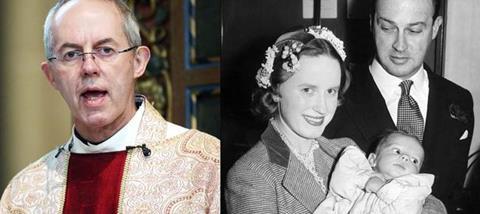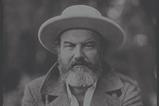The Archbishop of Canterbury can be thankful that Jesus himself was born in scandalous circumstances says Justin Brierley.

It's been revealed that the Archbishop of Canterbury Justin Welby has a different father to the one he had assumed all his life.
Welby says it was a 'complete shock' to discover, on the basis of a DNA test, that his father was not Gavin Welby, the man who brought him up. In fact, his biological father was the late Sir Anthony Montague Brown, a former private-secretary to Winston Churchill. It turns out that his mother Jane Williams had a brief liaison with Montague Brown before her marriage to Gavin Welby, and Justin was the result.
In response the Archbishop has said, 'I know that I find who I am in Jesus Christ, not in genetics, and my identity in him never changes.'
In another age, the news that the Archbishop of Canterbury was conceived out of wedlock and not raised by his biological father would be cause for scandal. Not so in the 21st century. If anything this revelation will cause the Archbishop to be seen by most as an ordinary person with all the same messiness of personal circumstances that most people experience. Indeed, Welby has taken the opportunity to express how his upbringing with two parents who suffered from alcoholism was far from perfect too.
But in finding that his paternal situation is complicated, Archbishop Justin also finds himself in good company.
It's evident from the New Testament that Jesus himself was beset by controversy about who exactly his real father was. Our earliest Gospel, Mark, sidesteps the controversy altogether: Jesus turns up in chapter 1 as a grown man. It's in the Gospels of Matthew and Luke, written down slightly later, that Christians started to process the unusual origins of Christ.
There was evidently a controversy - Joseph the man who bought Jesus up had originally intended to break off his engagement with Mary his mother after he discovered that she was pregnant - and not by him (Matt 1:18-25).
I know that I find who I am in Jesus Christ, not in genetics, and my identity in him never changes
She claimed that her pregnancy was a result of divine intervention. You can imagine how that story would have gone down with many of her contemporaries. In a culture where fornication and adultery were punishable by death, the original ‘holy’ family must have lived a life filled with sideways looks and whispered rumours.
Early opponents of Christianity such as Celsus also used the story of Jesus' birth against the fledgling religion, spreading the accusation that Jesus was the result of a liaison with a Roman soldier. In John 8:41 you even see a hint of these accusations as the Jewish leaders, arguing with Jesus, say, 'We have not been born from fornication'. The implication of their snipe is 'unlike you'.
As such, Christianity is a religion that was born in scandal. But the first followers of Christ embraced that scandal, because Jesus himself seemed to attract a scandalous following, eating with prostitutes and tax collectors – the scum of the 1st Century Jewish world – and almost getting himself stoned to death by the religious authorities on several occasions.
Christianity is a religion that was born in scandal
Even his humiliating death on a Roman cross, the most shameful form of death imaginable for a 1st century Jewish rabbi, was held up by the first Christians as its central emblem, secure as they were in the belief that it did not represent the end of his claim to be King, but rather the beginning of something much greater.
So Archbishop Welby finds himself in good company, as does anyone with a less-than-perfect past. In fact the history of Christianity is filled with the stories of saints who were once sinners. And let's face it, most of us remain a mixture of the two for the whole of our lives.
Like Welby, I'm glad that those who follow the scandalous Jesus aren't defined by a dodgy past, but by the hopeful future they've inherited from the one who calls himself the true Father of anyone who accepts him.
Picture: Justin Welby / Jane Williams & Gavin Welby with Justin Welby as an infant (Press Association)




































